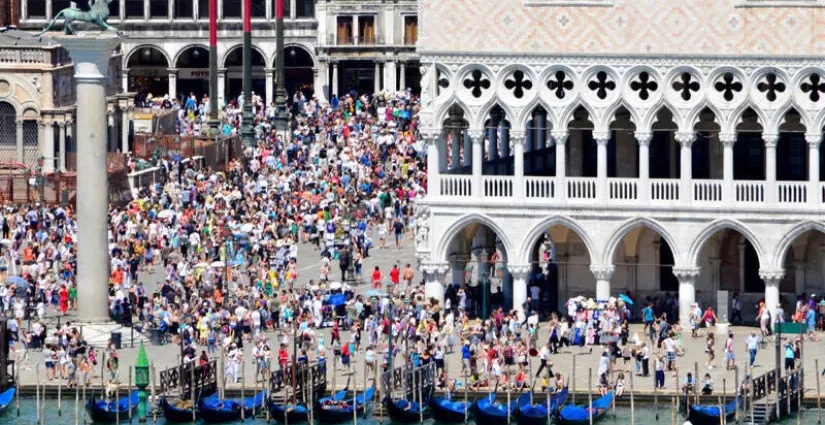5 min reading time
Published on 01/08/25 – Updated on 01/08/25
Venice made headlines last year with the introduction of its entrance tax, a measure that was as intriguing as it was divisive. While the introduction of an entrance tax for a city is rather unusual, taxes are commonplace in the tourism sector. However, they are not universally accepted, particularly with regard to their usefulness and validity. Can taxes really be used as a regulatory tool to combat the overtourism that many destinations claim to be suffering from?
Last year, we took a close look at the introduction of Venice’s entrance tax. This unprecedented tax is intended to regulate the large numbers of tourists who flock to the streets of La Serenissima, thereby damaging its ecosystem and impacting the quality of life of its residents.
The city decided to use this tax as a regulatory tool to combat the overtourism it was experiencing. And it is not the only destination to have opted for this solution.
A bulwark against overtourism…
Venice is far from being the only European destination to suffer from the harmful effects of sustained visitor numbers. Spain tops the list, with a feeling of tourismophobia that is growing year after year. Barcelona is at the epicentre of this phenomenon, prompting local authorities to take drastic measures.
The Barcelona City Council recently approved a proposal to gradually increase the tourist tax per night in the city, reaching the legal limit of €8 by 2029. Starting this year, the tax will be €3.40 per night in 4-star establishments and €2 in other types of commercial establishments, including campsites and youth hostels.

The surcharge already applied in Barcelona will increase from €4 to €8 for all categories of commercial accommodation. This surcharge will also be extended to other municipalities such as Girona and Tarragona, whereas until now it was only applied in the Catalan capital. This is a way for these destinations to prevent overtourism rather than cure it, fearing they will suffer the same fate as Barcelona.
There has also been a significant increase in the various taxes applied in the Catalan region, which also affects cruise passengers making a stopover of less than 24 hours. They will now have to pay a contribution of €12, compared to €7 previously. Southern Europe is not the only region…
This content is for subscribers only. You have 80% left to discover.
Every week, Hospitality ON Team brings you an expert look at the world of hospitality.
By becoming a member, you will have access to a complete ecosystem: exclusive content, jobs, etc.
Already a member ?
Login
Every week, Hospitality ON team brings you an expert look at the world of hospitality. By becoming a member, you will have access to a complete ecosystem: exclusive content, jobs, etc.


